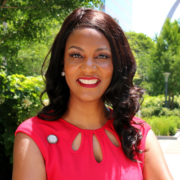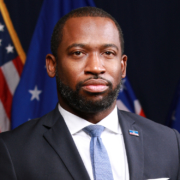ARP: Phoenix AZ, Invests in Jobs of the Future
Prior to the pandemic, Phoenix Mayor Kate Gallego was already working on diversifying its economy with a look towards the jobs of the future. With ARP funds, the city is partnering with community colleges to make it easier for residents to obtain degrees and certificates for high-demand, high-paying jobs. After a tech firm recently chose Phoenix as the location for a new semiconductor factory, Gallego and her team worked with community colleges to provide the right kind of training so that graduates are prepared to get jobs at the semiconductor plant. The Rescue Plan is allowing Phoenix to offer monthly stipends of up to $1,000 to help residents who enroll in courses for high-demand industries, such as technology and health care. The funds can be used to offset costs such as books and child care. And Gallego is particularly focused on ensuring single parents are able to participate.
Gallego launched the Route to Relief program, a partnership with local community colleges to help students enter high-wage careers in essential industries. “Thanks to the American Rescue Plan, we have a unique opportunity to help people enter extremely high-wage careers in Maricopa County,” Gallego said. Using resources from the federal ARP state and local recovery fund, the program will provide eligible students with free tuition, monthly stipends, and employment assistance. Programs range from healthcare to semiconductor manufacturing across 10 Maricopa County Community Colleges and place people in jobs that are crucial to supporting the Arizona economy.











